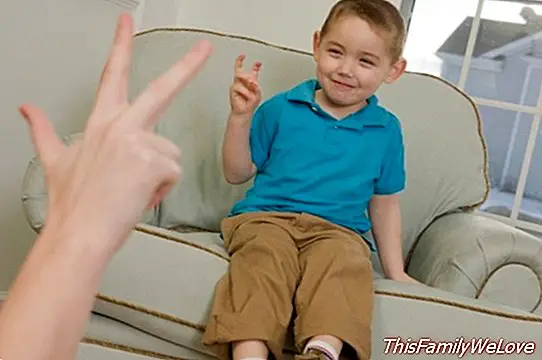Speech difficulties in children

Many children find it hard to start talking. It is true that each child has its own rhythm of development and some of the problems they present have an easy solution. However, we must be vigilant to locate them and solve them as soon as possible. For it, It is important to know what are these difficulties that are usually presented.
The most common speech difficulties in children
- Lack of language development. It is the most frequent alteration and is known as (language dysgenesis), which can be delay in understanding (aphasic), with delay in the expression (anartric), which is when you understand but there is no verbal language, or mixed. This alteration is usually caused by neuro-psychological immaturity in 75% of cases and brain damage in 25%. Thus, when it is verified that the child does not communicate because he does not understand is when you have to go to the specialist, since he could suffer a more serious alteration.
- Dislalia. The dyslalias are presented when there are different difficulties in the expression, as not knowing how to pronounce certain syllables; the most common is the "r". It is a phonological disorder that can appear after 3 years. It is evolutionary and depends on the characteristics of the child. When the problem is slight because it does not pronounce well the syllables locked (pr, tr, br, bl, pl) or any letter like the "r". What we can do is repeat the word that the child says badly: "Ah, the rat, do you want us to take the rat? Come on let's play with the rat". Thus, in a more or less short sentence we often say that word that costs him to pronounce. What we should never do is put ourselves at their language level, pronouncing the objects as he does or replacing them: dog "wow, wow", the bird "tweet, tweet", the meat "chicha", "bibi" for the bottle, "pepe" for the pacifier, etc.
Other problems that may arise are:
- Aphonies. Most often, the child has nodules in the vocal cords. Will be the phoniatric the one that will teach him to speak under, slowly, not to force the voice, to avoid that friction of his vocal cords. Also, at home we can teach you how to use your breathing correctly: explain that you imagine that you have a tube that goes from the nose to the little one and must fill it from below. That is taking a lot of air through the nose, with his mouth closed and putting his little hand in the gut to notice how it is filling with air. In the end expel the air very slowly by the mouth, so slowly that even if we put a candle lit in front of the mouth never turn off. Thus, we teach him to slow down the rhythm of speech.
- Stuttering. Children who are nervous and think faster than they can express may develop a mild stuttering type. Up to 6 years of age stuttering (dysphemia) is physiological or normal and is always accompanied by other alterations in their language. Parents should speak slowly, as the children imitate our way of speaking. After this age if it remains is when it is considered a disease and should be treated as soon as possible to avoid complications in intellectual development and personality such as: insecurity, emotional fragility, withdrawal, lack of socialization, fear and phobias (mainly when talking to strangers). The games have to be syllable: the slowest speaker wins; it is the first one that breaks the words into pieces, "au-to-bús".
You should consider taking your son to the speech therapist in case you use more gestures than words to communicate, that you do not understand when speaking, if you have a "rag language", if you do not make sentences of more than three words, if you do not speak or do it with nervousness, fast and without being able to produce words with fluency, or if it is often hoarse frequently.
Álvaro García
Advisor: Marisol Ramos. Clinical Psychologist and Speech therapist. Valdavia Medical Center




